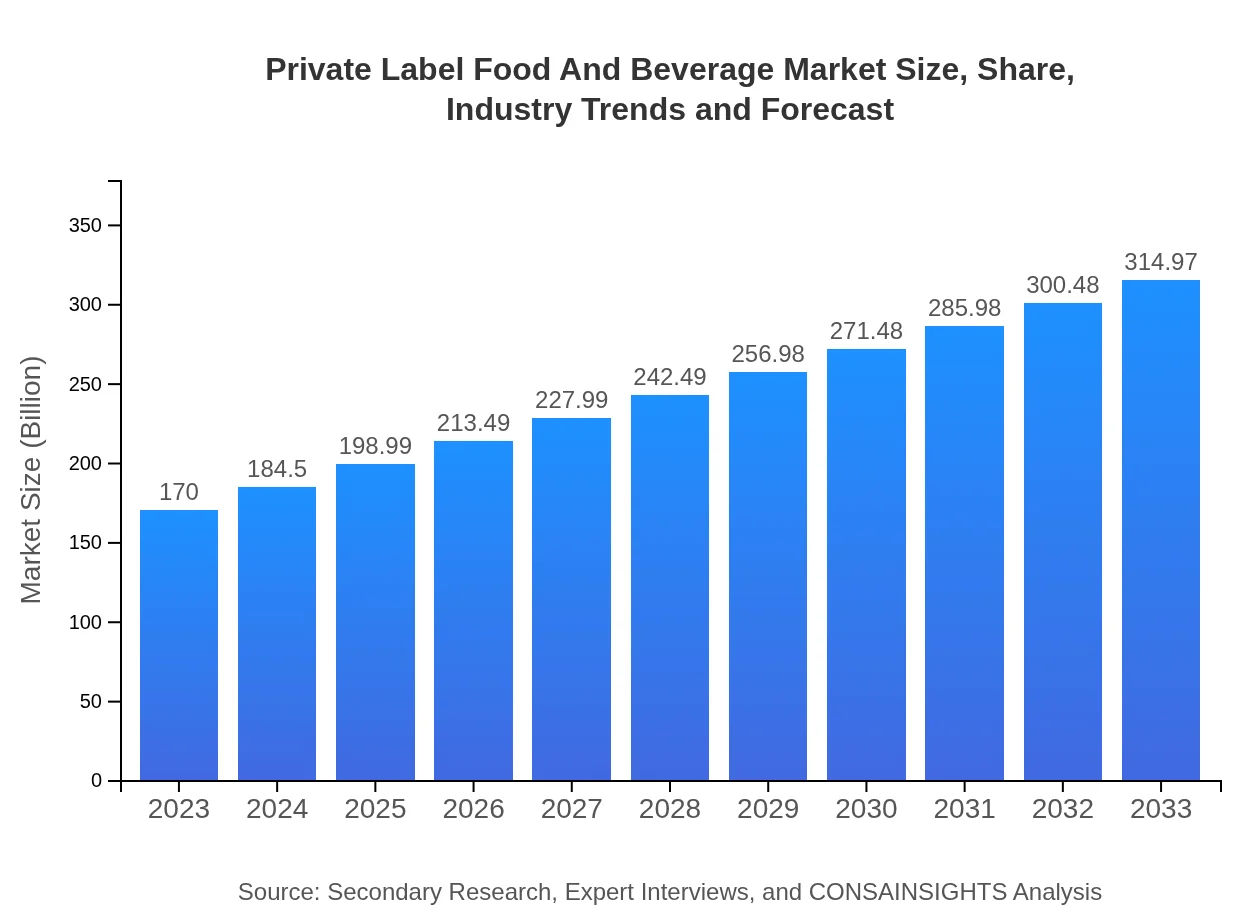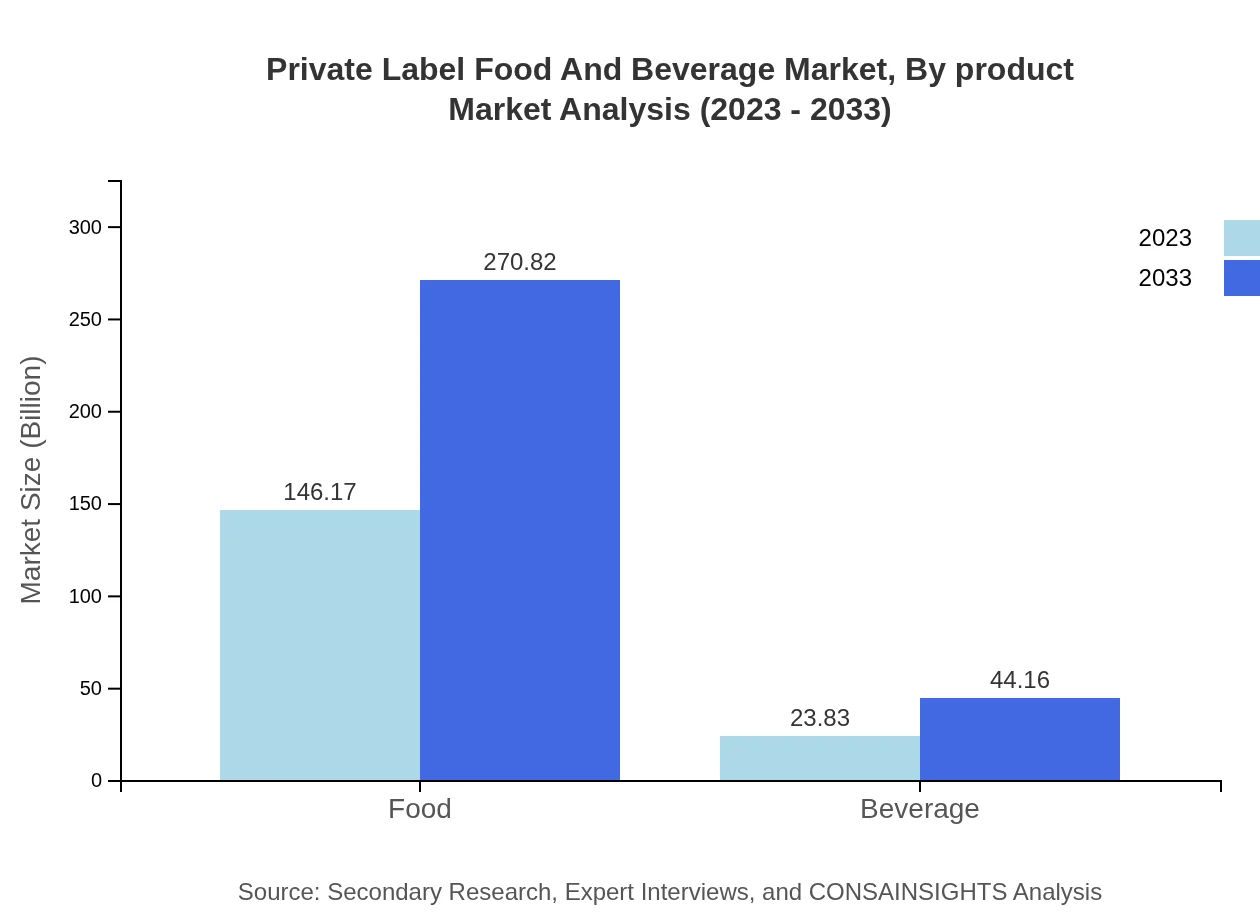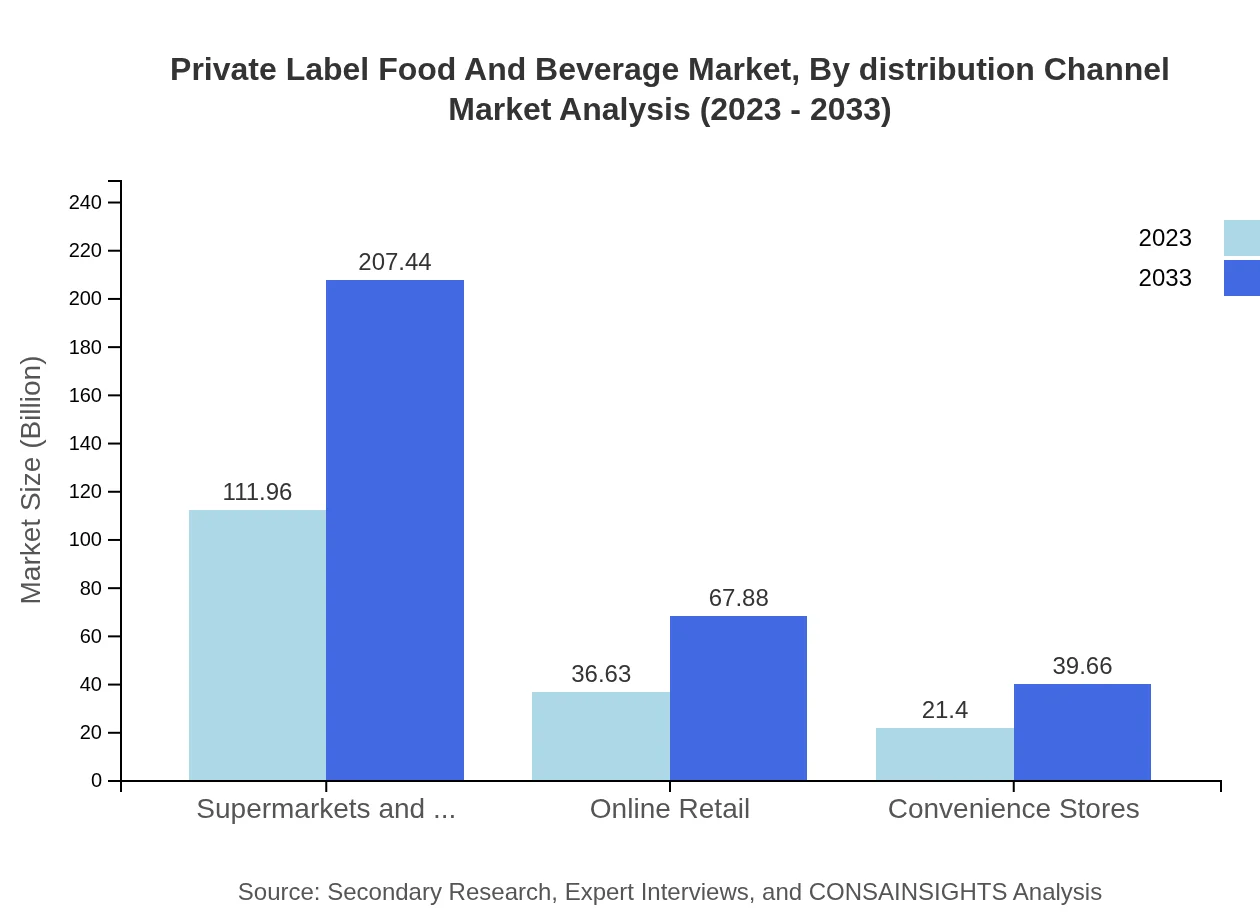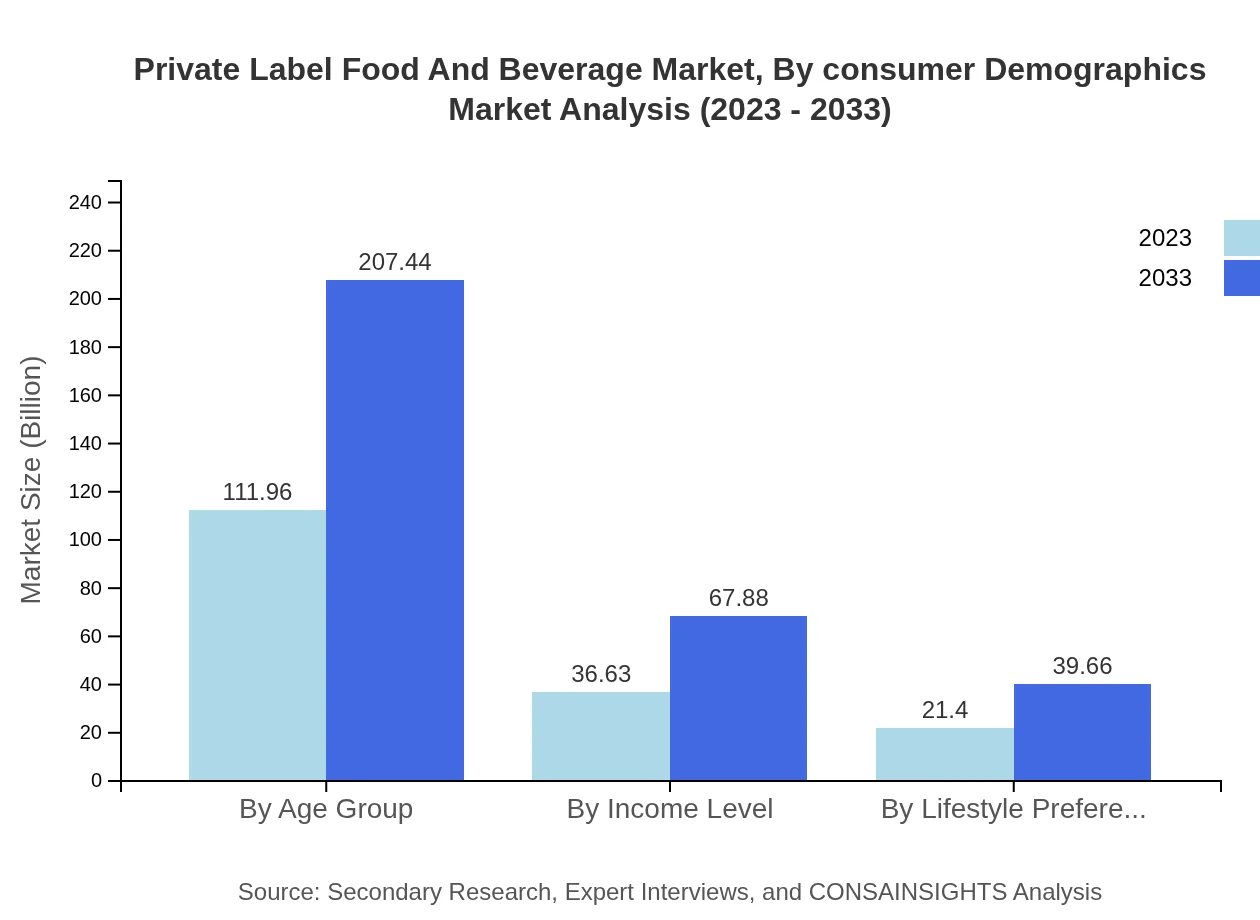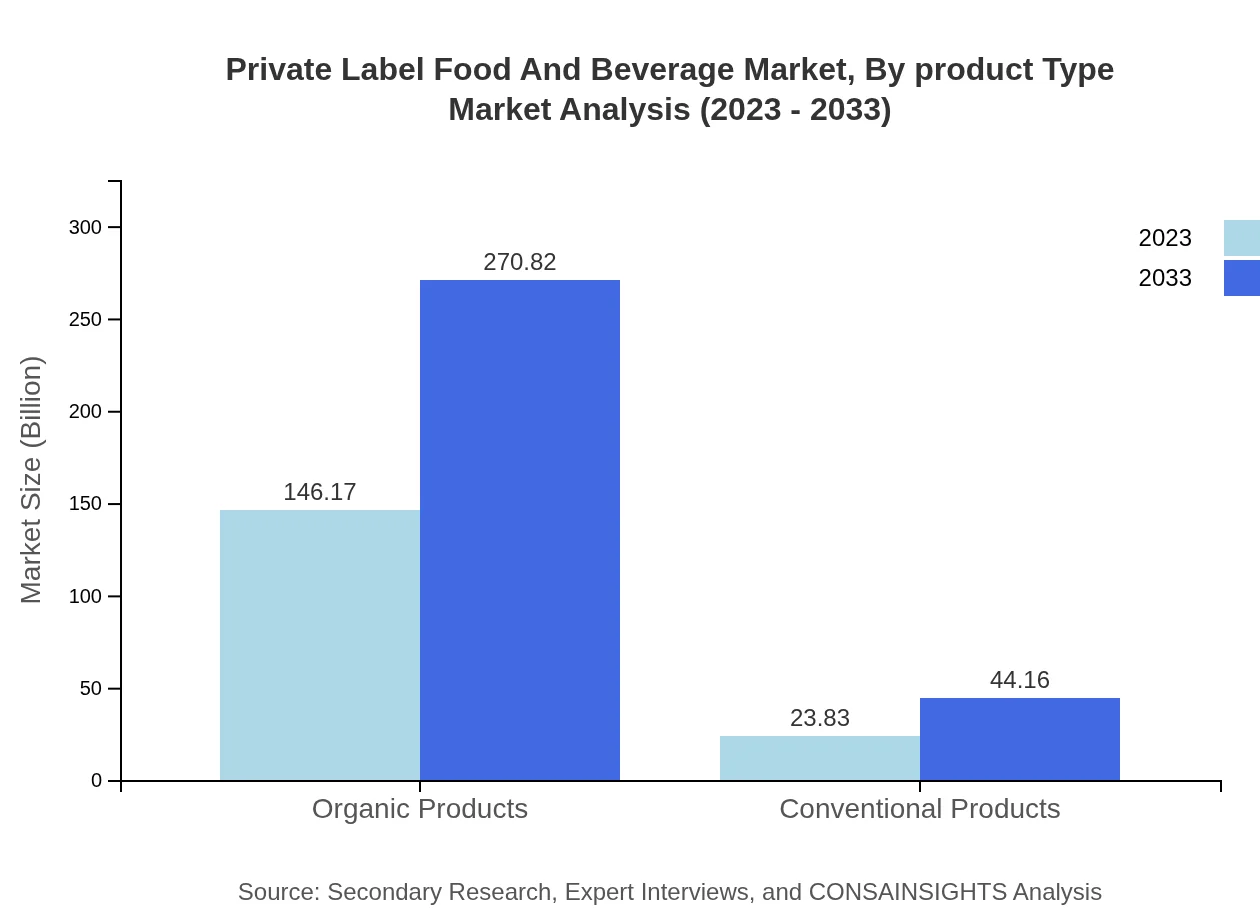Private Label Food And Beverage
Published Date: 31 January 2026 | Report Code: private-label-food-and-beverage
Private Label Food And Beverage Market Size, Share, Industry Trends and Forecast to 2033
This report provides comprehensive insights into the Private Label Food and Beverage market, detailing trends, forecasts, and competitive landscapes from 2023 to 2033.
| Metric | Value |
|---|---|
| Study Period | 2023 - 2033 |
| 2023 Market Size | $170.00 Billion |
| CAGR (2023-2033) | 6.2% |
| 2033 Market Size | $314.97 Billion |
| Top Companies | Amazon , Walmart , Aldi, Kroger, Lidl |
| Last Modified Date | 31 January 2026 |
Private Label Food And Beverage Market Overview
Customize Private Label Food And Beverage market research report
- ✔ Get in-depth analysis of Private Label Food And Beverage market size, growth, and forecasts.
- ✔ Understand Private Label Food And Beverage's regional dynamics and industry-specific trends.
- ✔ Identify potential applications, end-user demand, and growth segments in Private Label Food And Beverage
What is the Market Size & CAGR of Private Label Food And Beverage market in 2023?
Private Label Food And Beverage Industry Analysis
Private Label Food And Beverage Market Segmentation and Scope
Tell us your focus area and get a customized research report.
Private Label Food And Beverage Market Analysis Report by Region
Europe Private Label Food And Beverage:
The European market valuation will rise from $43.74 billion in 2023 to $81.04 billion by 2033. This growth is attributed to the heightened awareness around health and wellness, prompting consumers to opt for healthier private label choices.Asia Pacific Private Label Food And Beverage:
In Asia Pacific, the market is projected to grow from $36.65 billion in 2023 to $67.91 billion by 2033. Factors contributing to this growth include a rising middle class, increasing disposable incomes, and a growing preference for branded private label products among consumers.North America Private Label Food And Beverage:
North America leads in market size, estimated at $62.30 billion in 2023 and expected to reach $115.44 billion by 2033. The mature market is driven by large retailers focusing extensively on their private label strategies and an increasing trend toward health-oriented products.South America Private Label Food And Beverage:
The South America region is expected to see steady growth from $16.59 billion in 2023 to $30.74 billion by 2033. The growth is fueled by urbanization and increased demand for affordable but quality food and beverage options as consumers seek value for money.Middle East & Africa Private Label Food And Beverage:
The Middle East and Africa market shows promising growth, expanding from $10.71 billion in 2023 to $19.84 billion by 2033. Notable growth factors include growing urbanization and increased penetration of retail chains offering private label options.Tell us your focus area and get a customized research report.
Private Label Food And Beverage Market Analysis By Product
The Private Label Food and Beverage market is significantly dominated by food products, which are projected to grow from $146.17 billion in 2023 to $270.82 billion by 2033, capturing an 85.98% share. In contrast, beverages show a smaller market size increase, from $23.83 billion to $44.16 billion, with a 14.02% market share over the same period.
Private Label Food And Beverage Market Analysis By Distribution Channel
Distribution channels are critical to market success, with supermarkets and hypermarkets commanding the largest share at $111.96 billion in 2023 and projected to reach $207.44 billion by 2033. Online retail is also gaining momentum, increasing from $36.63 billion to $67.88 billion, while convenience stores are expected to grow from $21.40 billion to $39.66 billion.
Private Label Food And Beverage Market Analysis By Consumer Demographics
The market is segmented based on demographics such as age, income level, and lifestyle preferences. Products targeted at diverse age groups account for the largest segment, growing from $111.96 billion in 2023 to $207.44 billion by 2033. Similarly, the income-level segment is forecasted to ascend from $36.63 billion to $67.88 billion, indicating a strong consumer trend towards value-conscious purchasing.
Private Label Food And Beverage Market Analysis By Product Type
The product type segment emphasizes organic versus conventional product preferences. Organic private labels are gaining substantial traction, expected to grow from $146.17 billion in 2023 to $270.82 billion by 2033, matching conventional products at $23.83 billion to $44.16 billion, indicating a significant market shift towards health-focused offerings.
Private Label Food And Beverage Market Trends and Future Forecast
Tell us your focus area and get a customized research report.
Global Market Leaders and Top Companies in Private Label Food And Beverage Industry
Amazon :
Amazon has expanded its reach in the private label space with its brands like Amazon Basics, which cater to a vast range of food and beverage products, focusing on quality and affordability.Walmart :
Walmart is a primary player in the private label market, offering a wide variety of products under its Great Value brand, which positions itself as a low-cost leader without sacrificing quality.Aldi:
Aldi has been a pioneer in the private label market, with over 90% of its products being private labels, known for their high quality at competitive prices, attracting a loyal customer base.Kroger:
Kroger's private label offerings, including the Simple Truth brand, focus on organic and natural products, catering to health-conscious consumers and significantly contributing to the market's growth.Lidl:
Lidl continues to build its private label portfolio successfully, emphasizing fresh produce and value, which enhances its competitive stance in the discount retail sector.We're grateful to work with incredible clients.









FAQs
What is the market size of private Label food and beverage?
The market size of private-label food and beverage is currently estimated at $170 billion, with a projected CAGR of 6.2% from 2023 to 2033. This growth reflects a robust demand in the sector, driven by changing consumer preferences.
What are the key market players or companies in this private Label food and beverage industry?
Key players in the private-label food and beverage industry include major retailers and supermarkets that create their own products to compete with branded goods. Notable examples include Walmart, Costco, Aldi, and Lidl, which leverage their buying power to offer competitive pricing.
What are the primary factors driving the growth in the private Label food and beverage industry?
The growth in the private-label food and beverage industry is primarily driven by increasing consumer awareness of nutrition, health, and wellness. The rise in e-commerce, improved product quality, and competitive pricing also drive consumer preference for private-label products over national brands.
Which region is the fastest Growing in the private Label food and beverage market?
The fastest-growing region in the private-label food and beverage market is North America, expected to expand from $62.3 billion in 2023 to $115.44 billion by 2033. Europe also shows significant growth, with projections rising from $43.74 billion to $81.04 billion.
Does ConsaInsights provide customized market report data for the private Label food and beverage industry?
Yes, ConsaInsights offers customized market report data tailored to the specific needs and inquiries of clients in the private-label food and beverage industry. This allows for targeted insights that align closely with unique business objectives.
What deliverables can I expect from this private Label food and beverage market research project?
Deliverables from the private-label food and beverage market research project include comprehensive reports, detailed market forecasts, segmentation analysis, and insights on competitor strategies. Infographics and executive summaries will also be provided for clearer communication.
What are the market trends of private Label food and beverage?
Current market trends in private-label food and beverage include increased innovation in product offerings, a focus on organic and health-oriented products, and growth in online retail channels. Consumer preference is shifting towards ethical and sustainable brands, influencing product development.

